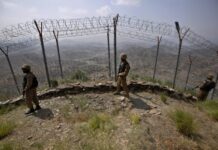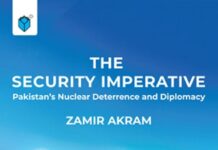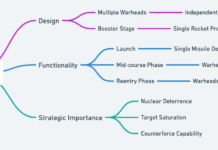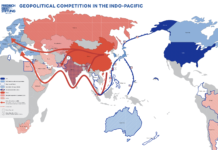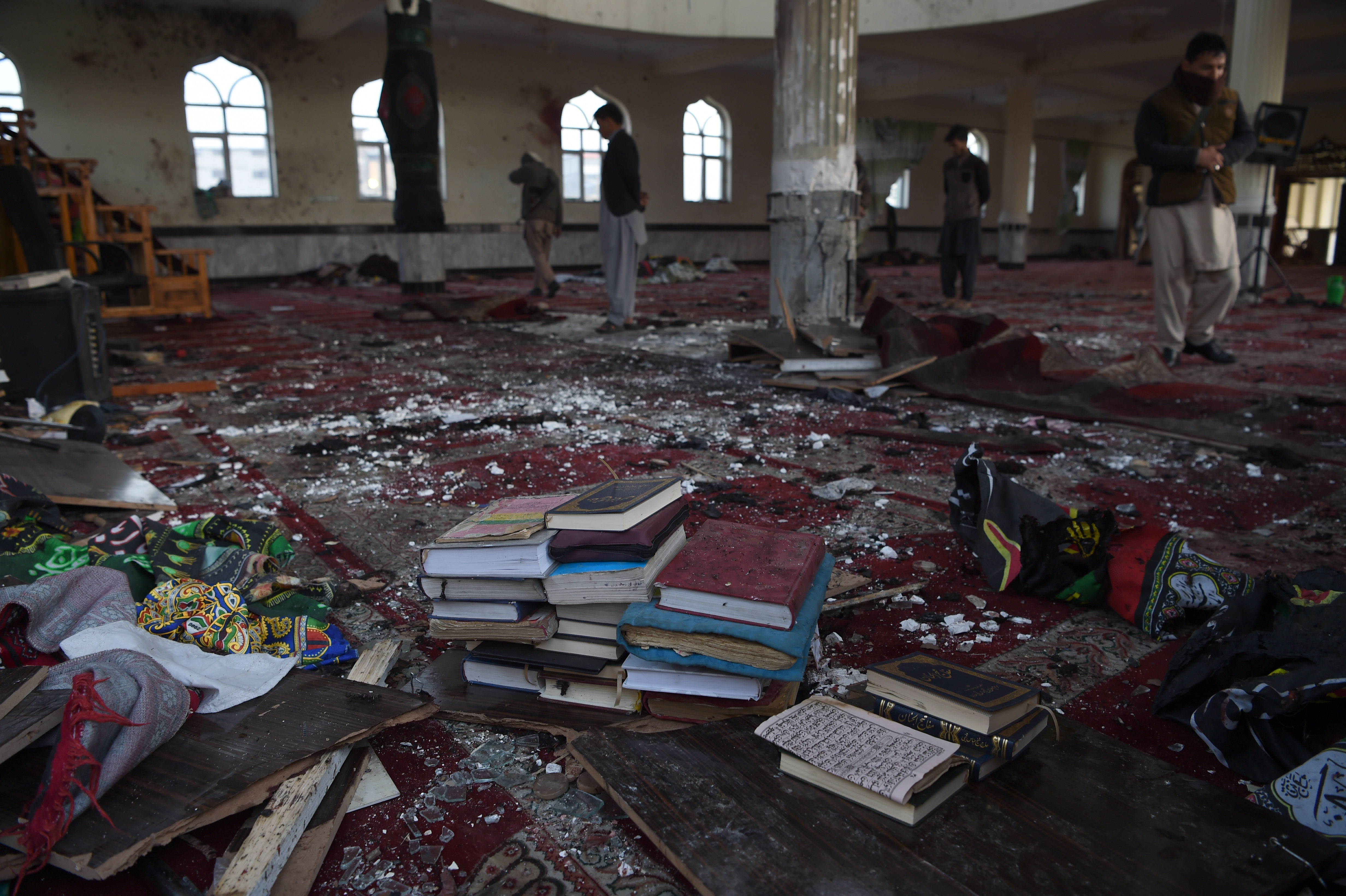Umair Jamal
The rise of the Islamic State (ISIS) in Afghanistan has set off alarm bells throughout the region. The group’s likely defeat in the Middle East means the militant organization is in search of new sanctuaries in other parts of the world. In a very short span of time, the group has not only managed to gain considerable strength in Afghanistan by establishing links with a number of local militant groups but has also shown atrocious capacity in terms of planning and executing major militant attacks in the country. The rapidly deteriorating security situation in Afghanistan means the country is increasingly vulnerable to ISIS’s threat and provides enabling an environment for the group to foster its transnational terror agenda.
The mounting and multifaceted security challenge in Afghanistan doesn’t bode well for the majority of regional states. Compounding the situation is the United States current policy of forcing a military solution in Afghanistan which directly undermines the regional states role and capacity when it comes to building a workable consensus to find a political solution to the Afghan security problem. Washington’s hostile and misguided policy preferences concerning Afghanistan’s militancy problem can only be counteracted if regional states formulate an active and united front which not only effectively contains the growth of ISIS but also brings the Afghan Taliban to the negotiating table.
Clearly, the worsening security situation in Afghanistan has directly threatened emerging regional geo-economic order. The United States has come out strongly against regional economic projects spearheaded by China. Considerably, U.S. considers China’s rapidly growing diplomatic, political and security leverage in the Asian region and beyond a direct threat to its own global diplomatic influence and outreach. In the South Asian context, Washington under President Trump’s leadership has openly opposed Beijing economic plans, which arguably accommodate states that, one way or the other, have had a long history of hostility and mistrust with the U.S. In this regard, Washington criticism of the China Pakistan Economic Corridor (CPEC) which forms the backbone of China’s global One Belt, Once Road (OBOR) infrastructure and connectivity project has grown considerably.
This context arguably informs that Washington’s current policy in Afghanistan is more focused on countering growing regional competition in the country in particular and the region in general than solving Afghanistan’s security problem. Speculations are rife that some level, Washington is involved in covertly supporting ISIS’s growth in Afghanistan. Iran and Russia recently accused the US of supporting ISIS’s agenda to undermine the security of the region. From Washington’s perspective, any argument supporting such covert or overt support cannot be simply written off: to push back against China’s assertive diplomacy and mega economic initiatives that are eying regional connectivity which the US considers to be at its expense, proliferation of a militant organization with a clear transnational terror agenda benefits Washington strategically. While evidence in this regard so far remains one-off, any such practice not only allows Washington leverage when it comes to weakening the Afghan Taliban and their allies in the region such as China, Pakistan, Russia, and Iran but also offers legitimacy to Washington’s extended stay in Afghanistan which gains support from the escalating militancy in the country.
Clearly, ongoing instability and a new phase of a global power struggle in Afghanistan have been driving a realignment of ties among regional powers such as Pakistan, China, Russia, and Iran. However, this development still requires a calculated strategic push on the part of the regional states in order to create a considerable impact that not only reverses the ISIS’s growth in Afghanistan but also contains Washington’s ability to sideline regional peace efforts.
In this regard, a number of key issues remain to be resolved among regional states. Regional states inability to develop consensus and an executable plan to deal with insurgent groups which still continue to enjoy state patronage at different levels in the region and have certainly become a reason for mistrust among Iran, Pakistan, China, and Afghanistan is still a major issue. Pakistan has been accused of following a selective counterterrorism policy that targets some militant groups while allowing others to operate which has added to regional security woes. Afghanistan, on its part, continues to offer sanctuaries to militant groups which target Pakistan’s interests while demanding action from the latter against the leadership of Afghan Taliban which the former believes enjoy Islamabad’s support. For the most part of the past two decades, Iran and Pakistan bilateral relations have always remained strained, with both countries prioritizing sectarianism in their respective foreign and domestic security policies. On the other hand, while China’s economic rise has matured its political and diplomatic clout in the region, the country is still not in a position to radically alter regional security environment. For instance, China has been pushing Pakistan for action against a number of insurgent groups that the former considers a long-term threat to regional peace and stability. Yet, while Pakistan’s recent economic and diplomatic isolation by the U.S. has further increased the country’s dependency on China, the policymakers in Islamabad are not ready to give up their longstanding policy of keeping ties with hard-line groups as part of its regional security policy.
However, the rise of the ISIS in Afghanistan and urgency on the part of the regional states to facilitate China lead economic connectivity projects to boost trade and financial links in order to meet their population’s economic needs, mean regional states have no other option but to join forces to overcome underlying regional security challenges. It’s undeniable that Regional economic plans cannot succeed unless coordinated regional efforts are put in place to develop consensus on emerging security issues. Any such regional approach would involve China, Russia, Pakistan, Iran and Afghanistan as well which have immediate stakes in Afghanistan’s future.
India, so far, has shown a reluctance when it comes to joining China lead emerging economic block. Moreover, New Dehli has never eagerly supported any regional effort aimed at bringing peace in Afghanistan that involves Pakistan’s central role. Still, the process of pushing New Dehli toward changing it current regional policy which is antithetical to China lead efforts to resolve the region’s economic and security woes should also be expedited. In this regard, addressing exiting mistrust between India and Pakistan should be Beijing’s utmost priority, for any eventual reconciliation process in Afghanistan and elsewhere in the region could get a boost if Islamabad and New Dehli together becomes its support base. Clearly, current American approach to isolate regional efforts, aimed at addressing Afghanistan’s security problem and competing global economic and security interests have put the country on a direct collision course with a number of regional states which have stakes in Afghanistan’s future overall security and stability of the region. Washington needs to understand that its confrontational policy in the region will only serve to undermine its regional interests.
It’s the need of the hour that regional states join forces to tackle the looming militancy challenge in Afghanistan. If left unaddressed, the issue can certainly have far reaching regional ramifications, potentially serving to destabilize emerging economic connectivity networks and complicating existing security challenges.
Umair Jamal is a freelance journalist and a correspondent for The Diplomat. He tweets: @UmairJamal15.



